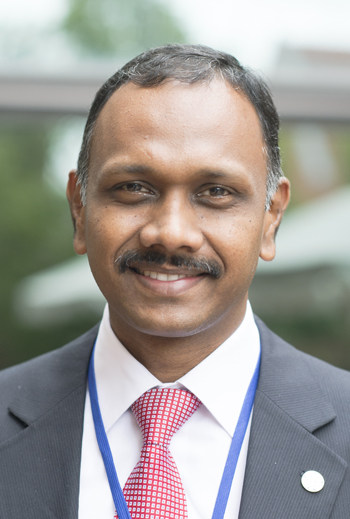A proposal by a coalition of medical schools, including the Wayne State University School of Medicine, to develop best practices and a guide to ease medical student passage through four key adaptions during education has secured a highly competitive Accelerating Change in Medical Education Innovation Grant from the American Medical Association.
The proposal, “Facilitating effective transitions along the medical education continuum: Knowledge mining and application from the executive onboarding and talent management industry,” was one of only 12 projects to win a $30,000 grant from the AMA. Submissions were open to all undergraduate and graduate medical

education programs across the United States. The grants are designed to provide financial support to hasten the transformation of medical education and better position learners to succeed in a rapidly-evolving health care system.
“Through this grant, WSU officially now joins the AMA Accelerating Change in Education consortium of medical schools,” said Senthil Kumar Rajasekaran, M.D., MMHPE, FCP, senior associate dean for Undergraduate Medical Education and Curricular Affairs at the School of Medicine. “In addition to a team of key faculty within our school of medicine, we will lead the project with two other schools (the University of Michigan and the University of Utah) working with us as partner sites.”
Projects awarded grants must improve transitions in medical education curriculum, impact learning outcomes and experiences of significant numbers of students, and demonstrate the potential to be adopted by other institutions. Previous grant winners include Beth Israel Deaconess Medical Center, Harvard Medical School, the Brody School of Medicine at East Carolina University, the Cleveland Clinic, the H. Lee Moffitt Cancer Center and Research Institute, Johns Hopkins School of Medicine and Rutgers’ Robert Wood Johnson Medical School.
The grant team noted that the stages of transition that physicians-in-training experience remain largely siloed, with attending student anxiety prevalent. And while students report entering medical school and moving along the continuum is motivating and exciting, high levels of stress and burnout, including increased rates of suicide during the initial months of internship, are indicative of high levels of anxiety.
Noting that many seasoned executives face similar stress during promotions into new roles, the team will partner with Odgers Berndtson, a top-10 global leadership advisory firm, as well as survey groups of medical students and residents, to develop best practices to assist medical students during their transitions.
The project will concentrate on four key transitions in medical education: the transition into medical school, from pre-clerkship classroom-based education to clerkship education, from medical school to residency, and from junior resident to senior or chief resident.
The project will result in the development of “transitions in medical education” handbooks for faculty and students based on best practices used in executive onboarding and talent management. The faculty version will offer educators a transition framework, as well as tools to develop curricular approaches and guidance on how to provide assistance to students during the four key periods. The student version will outline strategies and steps to thrive and be successful during transitions.
In partnership with the AMA, the handbooks will be advertised to undergraduate and graduate medical education programs across the nation. The grant team will work with the AMA to develop options to host a digital version of the books on an AMA-sponsored website.
The three medical schools have also committed to pilot the strategies outlined in the books.
In addition to Dr. Rajasekaran, the principal investigator, grant team members include Helen Morgan, M.D., director of Residency Preparation Courses at the University of Michigan Medical School; Sara Lamb, M.D., associate dean of Curriculum at the University of Utah School of Medicine; John de Regt, M.B.A., and Lisa DeConto, both of Odgers Berndtson; Richard Baker, M.D., vice dean of Medical Education; Jason Booza, Ph.D., assistant dean of Continuous Quality Improvement and Compliance; Margit Chadwell M.D., associate dean of Student Affairs and Career Development; Ebony Manigault M.P.H., third-year medical student; Tsveti Markova, M.D., chair of Family Medicine and Public Health Sciences, and associate dean for Graduate Medical Education; and Christopher Steffes, M.D., assistant dean for Clinical Education.